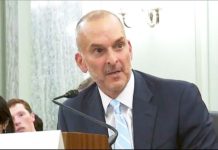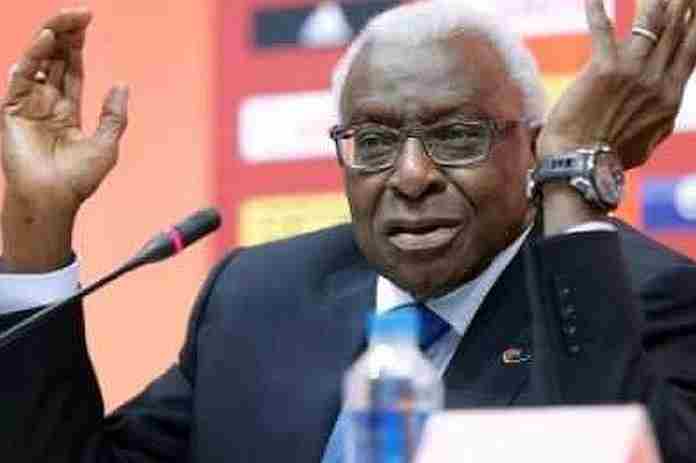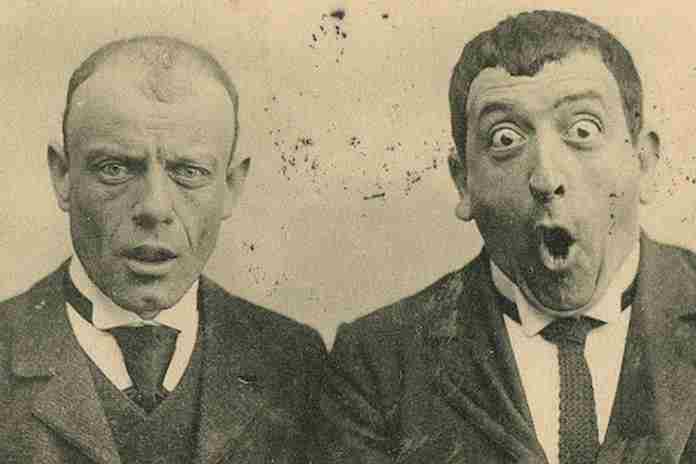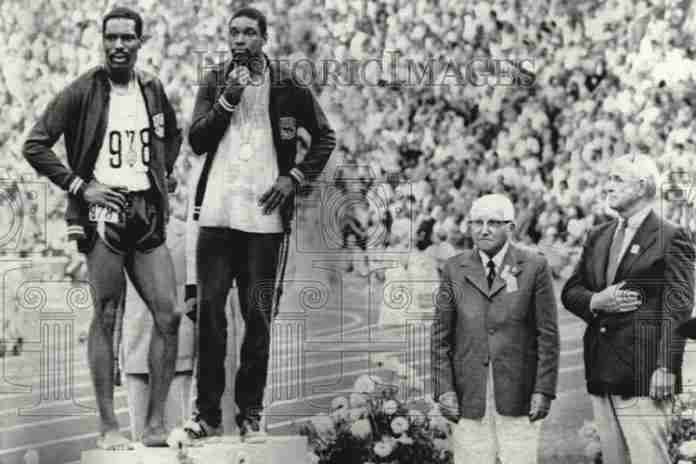The latest news, notes and quotes from the worldwide Five-Ring Circus:
● More Memorial Day memories ● Further to Tuesday’s notes from Barry Schreiber on famed American athletes who lost their lives in service to their country is another salute to a fallen track & field star.
Bob Hersh, the longtime IAAF Council member from the U.S. and National Track & Field Hall of Fame member, remembered:
“The first track meet I ever saw was the 1952 IC4A indoor championships at Madison Square Garden and the runner who impressed me the most was Dick Shea, who I believe won the mile and 2-mile races, both very impressively. …
“When I think of track people who were killed in action, the first name that pops into my mind has always been Dick Shea. Not quite in the same league as the ones you mentioned athletically, but still worth remembering on Memorial Day.”
Shea attended the U.S. Military Academy at West Point and won three straight IC4A cross-country titles from 1949-51 and was twice winner of the Heptagonal Championships in 1951 and 1952. He went to Korea after graduation in 1952 as a First Lieutenant, and was killed in action in 1953 in the second battle at Pork Chop Hill near Sokkogae (KOR). For his efforts in leading counterattacks against Chinese soldiers, he was awarded the Congressional Medal of Honor.
The Army track & field and lacrosse facility is now named in his honor: Shea Stadium.
● More money matters ● Our series on the finances of the International Federations has had an impact, with the Union Internationale de Pentathlon Moderne (UIPM) posting their 2018 financial statements earlier this week.
The audit report shows results for 2016-17-18 with the federation reporting revenues of $12.23 million in 2016 (when it receives most of its IOC television revenue share), $2.17 million in 2017 and $584,550 in 2018.
Expenses were consistent across the years at $4.32 million (2016), $4.17 million (2017) and $4.29 million in 2018. There was a surplus in 2016 of $7.91 million and then losses of $2.00 million in 2017 and $3.70 million in 2018.
The UIPM had reserves of $6.17 million at the end of 2018, showing that it is one of the most careful – by necessity – of all of the IFs in terms of spending. As UIPM Treasurer John Helmick (USA) pointed out in a telephone discussion, “We get more bang for our buck than any other international federation.”
Totally true. As the federation is a creature of the Olympic Games – invented by modern Games founder Pierre de Coubertin – it is completely dependent on the IOC for survival. (The stories which noted that UIPM statements were missing will be updated tomorrow.)
That leaves World Athletics as the only Olympic Games federation which does not post – somewhere – its financial statements, although it obviously produces them. The last set of World Athletics statements that were circulated were at last year’s Congress in Doha (QAT). There have been reports of World Athletics revenue in the $55 million range, but President Sebastian Coe (GBR) has said publicly that the IF lost about $20 million in its last fiscal year and has asked for support from the International Olympic Committee.
¶
In the meantime, the Association of National Olympic Committees (ANOC) announced on 20 May that it will “provide additional funding to the National Olympic Committees (NOCs) in order to support them in their preparations for the Olympic Games 2020 during these difficult times.”
That’s great, but raises the question of how much money does ANOC have to help out?
The answer comes from the financial presentation from its October, 2019 General Assembly in Doha. It showed that the ANOC has reserves of $36.88 million as of 30 June 2019, but with $10 million expected to be spent in the last half of 2019 and another $11-13 million “earmarked to cover additional expected costs related” to the 2019 General Assembly and the World Beach Games held on Doha.
So perhaps only $15 million is still available to ANOC now, not counting the scheduled support payment of $12.25 million from the International Olympic Committee. In fact, the presentation shows that the ANOC is essentially underwritten by the IOC.
● Athletics ● Competition is slowly returning to the track as countries begin to re-open sports facilities. And there are already noteworthy highlights, especially a sub-4:00 high school mile.
Last Saturday (2rd), Highland High School (Gilbert, Arizona) senior Leo Daschbach stormed from behind over the final half-lap to win the “Quarantine Clasico” mile at Oak Ridge High in El Dorado, California in 3:59.54.
He finished with a 56.81 final 400 m and became the 11th U.S. high schooler to break the 4:00 mark. He became only the fourth – behind Jim Ryun (1965), Lukas Verzbicas (2011) and Michael Slagowski (2016) – to run sub-4:00 in a high school race.
¶
Russia’s TASS News Agency reported that 2018 World Indoor High Jump champ Danil Lysenko could be suspended for up to eight years for a cover-up of “whereabouts” failures.
Lysenko missed multiple tests, but Russian Athletics Federation officials were alleged to have falsified documents to keep Lysenko from being suspended. Lysenko, still just 23, cleared his lifetime best of 2.40 m (7-10 1/4) in 2018 and would otherwise be a medal contender for Tokyo in 2021.
¶
The 2020 Boston Marathon, originally postponed to 14 September, has been cancelled. A “virtual” event will be held from 7-14 September; worries of a second wave of the coronavirus in the Boston area led to the decision to cancel the race for the first time since its inception in 1897.
¶
Good news for World Athletics, which confirmed the British law firm Pinsent Masons as its “official supplier of legal services.”
It’s an unusual commercial agreement in the professional services field, not certainly not unheard of. Said World Athletics head Coe:
“Their global presence and relationships will allow us to access their services wherever we are, which is particularly useful for an organisation with 214 member federations and major events staged across the world, and their expertise will help us to maintain world-best practice in our governance and commercial relationships.”
Translation: World Athletics hopes that the firm’s “global presence and relationships” can create opportunities for further commercial opportunities. It’s a creative and noteworthy concept, especially as the federation has had a long-term relationship with the Japanese marketing giant Dentsu for its worldwide sponsorship sales. But with World Athletics in need of more money, this looks like an intriguing idea.
¶
Bad news for World Athletics, as the former head of the federation, Lamine Diack (SEN), is now scheduled to have his trial for bribery, extortion and money-laundering to resume in Paris (FRA) on 8 June.
The trial got started in January, but a report from Senegal on testimony given in a judicial proceeding there by Diack’s son, Papa Massata Diack – also a defendant, but who the French prosecutors have been unable to extradite – caused the lengthy delay.
Agence France Presse reported that Diack, now 86 and under house arrest since 2015, is facing up to 10 years in prison and that
“The prosecution alleges Diack obtained $1.5 million of Russian funds to help fund Macky Sall’s 2012 succesful campaign for Senegal presidency election, in exchange for the IAAF’s anti-doping arm to cover up offenses by 23 Russians.”
The trial, once started, is expected to conclude by 18 June.
● Games of the XXXV Olympiad 2032 ● The Olympic bid process for the 2032 Games has slowed to a crawl during the coronavirus pandemic, especially in Australia.
A strong bid from the Queensland region was aiming to present a detail proposal to the International Olympic Committee this summer at the Tokyo Games, but the effort has been derailed by the delay of the Games and efforts against the virus in Australia.
However, even with some gadfly complaints about the concept by fringe politicians, the Queensland ‘32 concept passed a small – if little-noticed – trial with the implosion of a public petition to stop the bid effort.
A public petition on the Queensland Parliament site called “Say no to the 2032 Olympic Games bid” was posted on 31 January and needed 10,000 signatures to be taken up as an issue. Although it got off to a fast start, interest faded rapidly and it ended on 31 March with just 5,032 signatures, far short of the total for further action.
That’s a rate win for an Olympic bid, and its importance in demonstrating interest in the area for the 2032 Games should not be discounted.


























